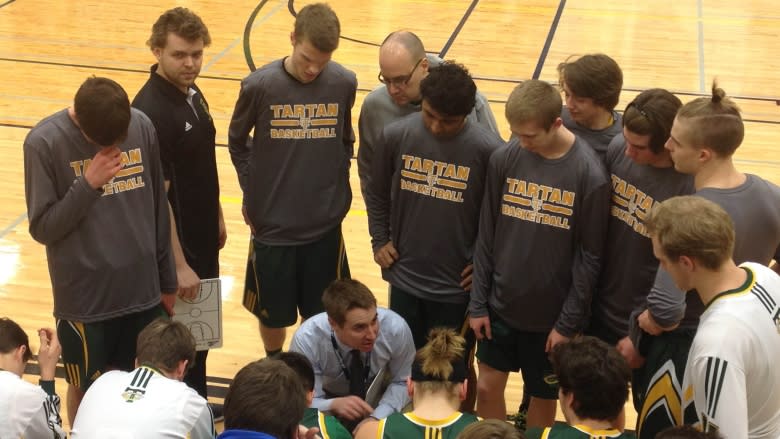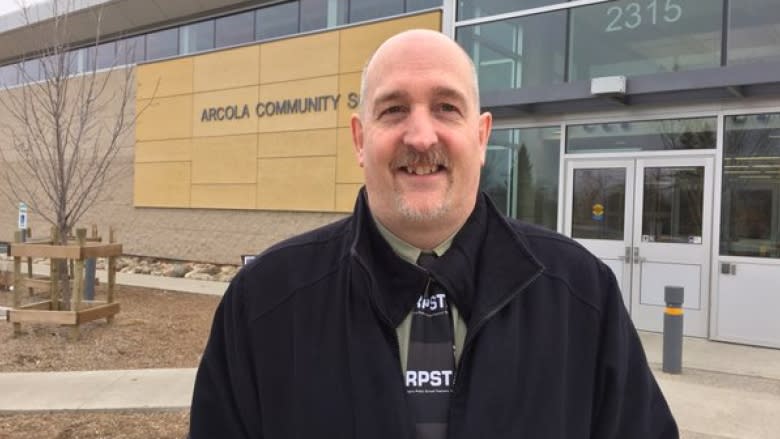Coaching hours, extracurricular activities at risk: Sask. teachers
Parents may find themselves searching for school basketball coaches if Saskatchewan's education minister scraps local teaching agreements.
Each of Saskatchewan's 28 school boards and their teachers negotiate working conditions, preparation time, and sick and compassionate leave days, along with compensation for noon-hour supervision and extracurricular coaching, through what educators refer to as a Local Implementation Negotiating Committee (LINC).
Citing LINC agreements as a "problem," Education Minister Don Morgan told CBC News he would like to scrap them.
"There are significant cost issues well in excess of $100 million a year and we'd like to find some way to deal with them in a more appropriate manner."
Government looking for consistency
Morgan said the province wants to govern schools in a way that avoids "the vagaries from area to area."
Contracts differ across the province when it comes to how much time must be spent in the classroom and how much time is allocated to preparing lessons, professional development, and marking assignments. The contracts also vary greatly in how much extracurricular work teachers must complete to earn an additional day of leave.
"If you're a science teacher teaching whatever grade, you'll get roughly the same supports and benefits as somebody else in a different city," Morgan said.
Morgan noted teachers' salaries will be also subject to the same overall 3.5 per cent wage cut being proposed for other Saskatchewan public servants.
Educators, however, are leery about efforts to standardize or outright scrap local collective bargaining agreements.
"This is just an attempt to cost-save; it's not that this is a better way of doing things" said Jim Gallagher, who spent 36 years teaching in the Regina Catholic School Division. "At least be honest about it."
Urban teachers worry about losing prep time
Gallagher spent five years as president of the Regina Catholic School Teachers' Association and negotiated two LINC agreements for teachers in his division before retiring. He said LINCs have historically allowed each division to respond to their own needs.
"There's no way that taking the LINC agreements away and making them all common, or reducing prep time across the board, is going to improve education. That's a myth," he said.
He said teachers often work at home on evenings and weekends, and find themselves making a trip back to the school to prepare for classes. Teachers must also co-ordinate who uses what resources when — like the photocopier — to get it all done in a day.
Reduced extracurricular activities
"When you're looking at all of that planning, if that's going to increase or you don't have the time embedded in the day to do that, something's got to give," said Jeff Perry, president of the Regina Public School Teachers' Association.
He and other teachers in Regina and Saskatoon said losing prep time squeezes out voluntary noon-hour supervision and extracurricular activities.
That could leave parents on their own to organize school plays, supervise yearbook committees, and find outside coaches for school sports.
The Saskatchewan High School Athletics Association says it encourages all school teams to have a teacher as a coach, but it can accredit non-faculty coaches who are approved by school divisions.
"We are reaching a point where teachers are feeling a little overwhelmed with what they're being asked to do in the hours that are available," Perry said, noting teachers in his division are reporting increased levels of burnout, stress and mental health problems.
The Saskatchewan Teachers' Federation said teachers in smaller school divisions often have smaller class sizes but face other challenges, such as teaching in multi-grade classrooms.
The organization is preparing to negotiate a province-wide agreement on teachers' salaries this summer. The current agreement expires at the end of August.
"The system is pretty lean as it stands, but at the same point [Don Morgan] has made a commitment to not affect frontline services and that's what we'll expect to see," said federation president Patrick Maze.
"Meaningful consultation has to occur with teachers prior to the government considering any changes to collective bargaining legislation, structures or processes."
Support workers say students will suffer
Educational assistants, caretakers, and other unionized support staff said a move to amalgamate or scrap collective agreements with school boards will short-change students.
"The focus is trying to squeeze a few dollars and a few cents out of school divisions, out of the education system," said Jackie Christianson, who represents just over 7,000 education workers for the Canadian Union of Public Employees.
Her members currently have contracts with 21 Saskatchewan school boards.
"It's just a bad idea. It doesn't focus on children or their needs," Christianson said.




